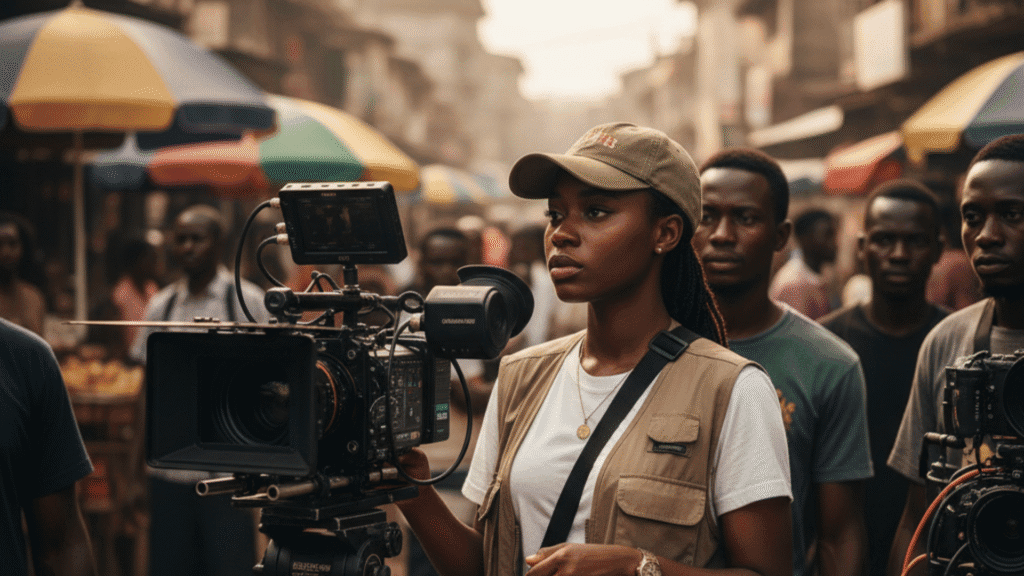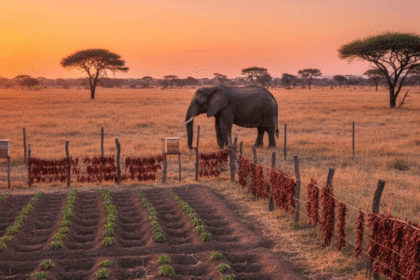Afrobeats and Nollywood formalize, becoming global engines of African soft power
By Brian Ochieng Akoko, Reporter | Nakuru City – Kenya.
For decades, the story of African economic growth focused on raw materials. It was all about mining, agriculture, and oil exports. Today, a far more vibrant and sustainable engine is taking center stage. It is the Creative Economy.
This refers to the industries based on creativity and culture. It includes music, film, fashion, literature, and digital art. The impact is profound. These sectors are transitioning from small, informal hustles to formalized, high-value economic drivers.
African music, particularly Afrobeats, has become a global phenomenon. It dominates streaming charts and sells out arenas worldwide. Film industries, like Nigeria’s Nollywood and Kenya’s Riverwood, are massive employers.
They generate billions of dollars annually. This creative boom is not just cultural. It is fundamentally economic. It is creating millions of sustainable jobs. It is attracting huge investments from global streaming services and record labels.
The Creative Economy is also Africa’s most powerful tool for projecting soft power. It changes global perceptions of the continent, one hit song or blockbuster film at a time.
The Rise of the Creative Entrepreneur

The shift is driven by a new generation of creative entrepreneurs. They understand both art and business. They are leveraging digital distribution to bypass traditional gatekeepers.
Platforms like YouTube, Spotify, and Netflix have opened the African market to the world. They have given African artists direct access to global audiences. Before, an artist was reliant on local radio or limited distribution channels.
Now, their work is instantly available to billions. This digital access has led to massive commercial success. It has created a formal economic structure around creative work. The film industry provides a prime example.
Nollywood is now the world’s second-largest film producer by volume. It employs hundreds of thousands of people. This includes actors, directors, camera operators, editors, and set designers. The ecosystem is complex.
It involves film equipment rentals, studio construction, marketing, and distribution networks. The rise of high-quality local content is fueling this growth. Global streaming giants are commissioning African originals.
This injects foreign capital directly into local production houses. This formalization is key. It ensures artists and workers are paid fair wages. It leads to better copyright enforcement. The informal hustle is becoming a sustainable, professionalized career path.
Afrobeats: A Global Cultural Export
Afrobeats is arguably the most recognizable African cultural export of the 21st century. Its infectious blend of West African sounds, highlife, jazz, and American R&B is universally appealing. The music genre is now more than just entertainment.
It is a major economic product. African artists are signing multi-million dollar deals with international labels. They are touring globally. They are generating massive export revenue. The economic ripple effect is huge.
It fuels the fashion industry, as designers create clothing for music videos and stage performances. It boosts tourism, as fans travel to experience the music culture firsthand. The genre also drives significant digital infrastructure development.
The demand for high-speed internet and mobile data is directly linked to music streaming and video consumption. African artists are becoming global brand ambassadors.
They are partnering with major international companies. This elevates the profile of their home countries. It creates an atmosphere of innovation and cultural vitality.
The success of Afrobeats is a powerful case study. It demonstrates how indigenous culture can be packaged and exported as a premium global commodity.
Soft Power: Reshaping Global Perceptions
The most powerful long-term effect of the creative boom is the projection of soft power. For too long, the narrative about Africa has been dominated by negative headlines—conflict, poverty, and aid dependency.
African film and music offer an alternative, self-determined narrative. They showcase complexity, joy, ambition, and modern life. A global audience consuming African content is engaging with the continent on its own terms.
They see the creativity, the urban sophistication, and the diversity of African nations. This subtle shift in perception is invaluable. It encourages foreign direct investment, tourism, and diplomatic engagement.
When the world sees Africa as a source of innovation and culture, rather than just a recipient of aid, the entire relationship changes. The Creative Economy is fundamentally a story of agency.
It is Africans telling their own stories, in their own voices, to the world. This creative revolution is not just about entertainment. It is about economic independence, job creation, and the powerful reclamation of the continental narrative.




Daj svoj stav!
Još nema komentara. Napiši prvi.